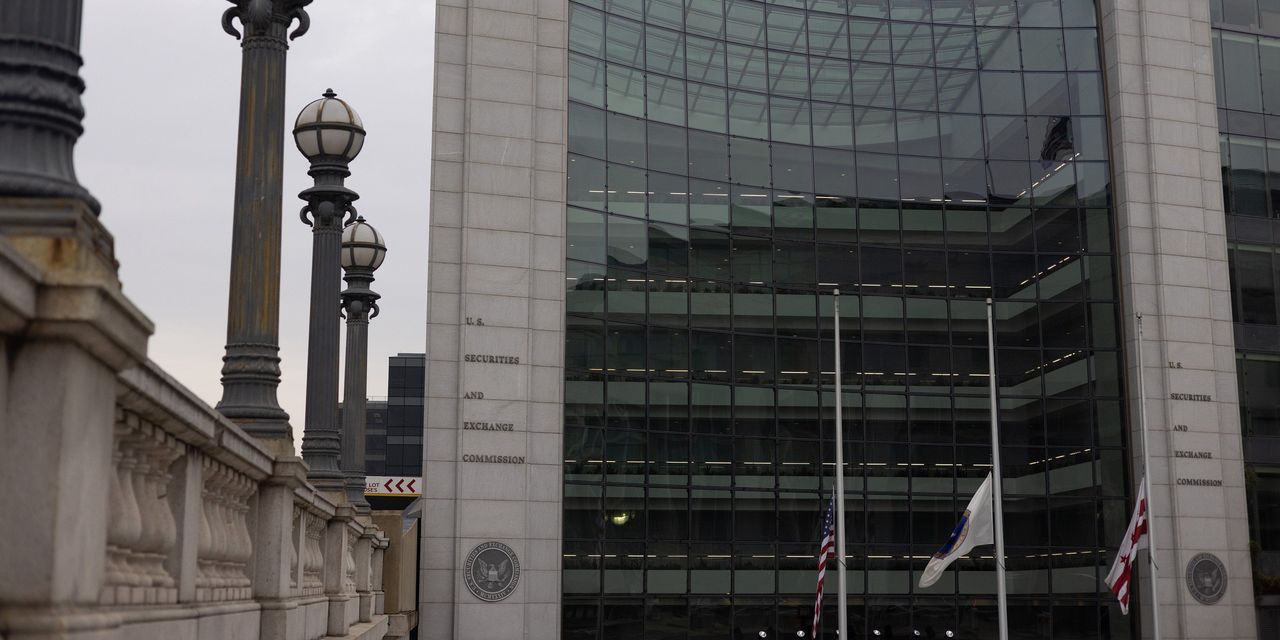
WASHINGTON—The Securities and Exchange Commission proposed Thursday to shorten the window for shareholders to alert the market when they build an ownership stake of more than 5% of a company’s stock, a potential setback to activist investors.
The proposed rule would reduce the deadline for disclosing such equity positions to five days from 10 days, among other changes, the SEC said. It would also deem holders of some derivative securities to be “beneficial owners” of the underlying company’s stock if the instruments are held “with the purpose or effect of changing or influencing the control of the issuer.”
Activist investors, who buy up company shares with the goal of gaining board seats or increasing their influence in proxy votes, use the current 10-day reporting window to quietly build their positions. Once they cross the 5% threshold and must disclose their stakes via an SEC form known as 13D, the target company’s share price often rises. That makes the activist’s campaign more costly.
Supporters of a shorter window include publicly traded companies and their executives. They have argued that current rules, which date to 1968, are outdated and that technology has since made it easy to report ownership much more quickly.
SEC Chairman Gary Gensler, whom President Biden nominated, said last summer he was considering shortening the deadline. He said Thursday the 10-day window creates an information asymmetry between activist investors and other shareholders.
“Investors currently can withhold market-moving information from other shareholders for 10 days after crossing the 5% threshold,” Mr. Gensler said in a press release. “The filing of Schedule 13D can have a material impact on a company’s share price, so it is important that shareholders get that information sooner.”
Activist Investors
Related coverage, selected by WSJ editors
The SEC will take public comments on the proposal for at least two months before preparing a final rule. Democrats hold a 3-1 majority on the commission.
Republican SEC Commissioner Hester Peirce voted against the plan. She said the agency has a duty to resolve information disparities arising from the fact that companies and their executives have privileged access to inside information. But it is harder to extend that premise to outside investors’ own plans.
“We want to encourage investors to ferret out information and find undervalued companies,” Ms. Peirce said in a dissenting statement. “Indeed, information asymmetries in this sense—where investors have equal access to disclosure from the issuer and insiders, but come to different conclusions about the long term prospects of a company based on their respective due diligence—are a feature, not a bug, of our capital markets.”
Some academics say the benefits to individual investors from earlier disclosure of large stakes in companies are less clear than Mr. Gensler suggested. If an SEC rule to shorten the reporting window discouraged activist investors, other shareholders could miss out on the price gains that often follow such campaigns, according to a 2013 paper by four university professors, including former Democratic SEC Commissioner Robert Jackson.
Washington’s main lobbying group for hedge funds, which include many activist investor groups, also criticized the SEC’s plan.
“The proposed rule diminishes the ability to hold entrenched corporate management accountable,” said Bryan Corbett, head of the Managed Funds Association. “It is discouraging to see that the SEC, once again, is attacking active managers and reducing the tools at their disposal to strengthen American markets.”
Write to Paul Kiernan at [email protected]
Copyright ©2022 Dow Jones & Company, Inc. All Rights Reserved. 87990cbe856818d5eddac44c7b1cdeb8








